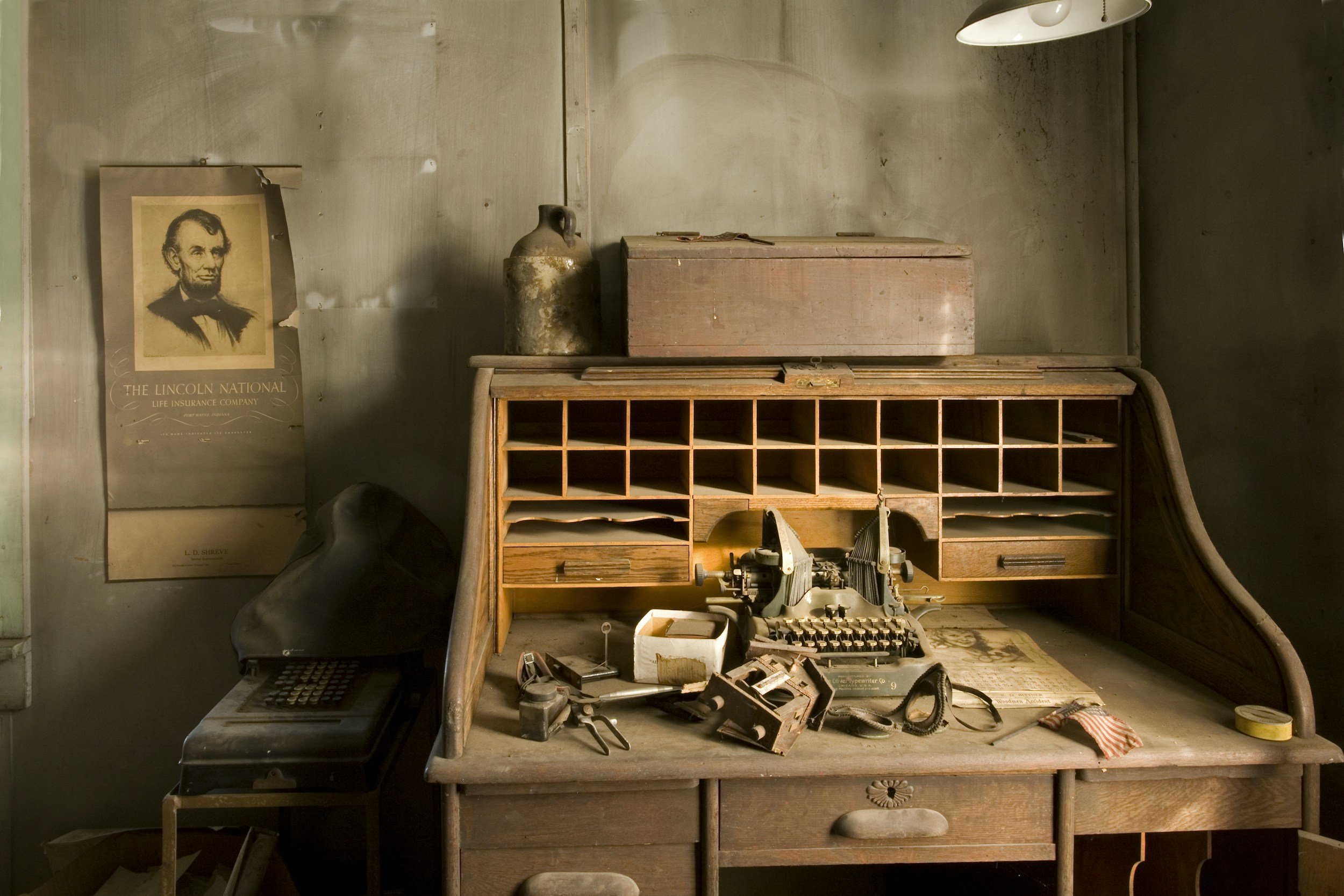I don’t much care to think or write about objects. The subject seems like an affront to my mindset. I don’t deny their existence – who could? But I’ve never thought of them as the most interesting things in the known universe.
That is partly because I’ve floated far enough down the river of time – block that metaphor! – that by my raft is full. I don’t like clutter; it reduces the value of the things you have and makes them harder to find. And it’s not a good look when people visit.
I have no more room for art on my walls, or furniture in my house, and that’s a good thing because it allows me to focus on larger matters. But maybe they only seem larger now because I’ve taken care of the smaller stuff, surrounded myself with things (art, clothing, furniture) that seem to reflect who I am for better or worse. Once upon a time, a new (antique) rocker meant something.
My office often seems cluttered to me, but that’s just a personal conflict or contradiction. I know where things are, and they seldom get lost. I’ve seen much worse clutter in my own family. (My father would refer to himself with extreme irony as a “compulsive neatnik”). He exemplified the idea that clutter can be dynamic. Yet when I look at my desk (unless I’ve just spent half a day cleaning it so that I can see the wood of the surface) I think: who is this messy guy? Surely not the one I see in the mirror.
But enough of that. I’m not a Buddhist, and I’ve happily formed many attachments to things -- often very small attachments to small things. Vanity has compelled me to maintain certain loose standards of furniture, dress, etc. I put a personal premium on books and attached to many of them – but are books objects, or compendia of ideas and stories and ways of seeing and thinking?
What triggered these thoughts was reading a book called Objects of Love and Regret, by my friend Richard Rabinowitz. It’s a spectacular piece of writing, but that is almost beside the point. What it got me to think about is the role of objects (in his case, mundane family items that tell part of that family’s history) in our lives.
Rabinowitz makes brilliant use of family heirlooms to tell his story. I have few objects that are as telling, or as fraught with emotional context, as those he describes. But I’m probably a more object-dependent person – and that’s not a boast, but the opposite. I draw strength from the little and not-so-little things I’ve acquired and that serve the dual purpose of being accessories to my real life goal (writing these posts), and providing self-definition. They are magic mirrors that don’t necessarily reflect the vanity back to you.
For example, I’m a serial collector of things. Collecting serves the first two purposes (or at least the second one) and a third, which is that they manifest the need to impose order on a chaotic universe. They bring stuff together grouped by kind. I collected stamps as a kid, baseball cards, and later art, books, desks, pens. I’ve managed to collect smaller and smaller things as I have aged. I’ve renovated two 19th century houses and part of a third, and I take some pride in rescuing them from desuetude, but my reasons were more selfish than not.
I began collecting rare books as a young man, and continued for many years, with long intervals when, for whatever reason (family, career) I didn’t collect at all. The books are a shrine to modern American (and some British and Irish) literature. But then I stopped, for three reasons. One, I was running out of shelf space. Two, I could no longer afford the books I wanted. Three, sadly and inexplicably, I somehow outgrew collecting books. (Not owning them but collecting them). I miss the person I was when I loved book-collecting, but he’s no longer here.
I’ve since collected other things related to writing: antique desks, and what I’d call vintage (as opposed to antique) pens. I soon ran out of the need and space for desks.
At some point I stopped acquiring vintage pens and began buying cheap, old ballpoints, sometimes in large lots. Even these have their charms, including the advertising on the barrels. Now I have enough of those, too. I can’t bring myself to deaccession any of these wonderful objects; but neither can I add to the clutter. I have been de-cluttering for some years now, getting rid of unwanted things.
The point is this: objects are great, up to a point We need some of them, and they can become extensions of who we are. You simply have to keep it all under control (unless, as in my father’s case, such control is the very thing you’re trying to avoid). Attachment is good – until it isn’t, and as long as you know the difference. Objects and attachment are never the problem, if there is a problem. And if you’re particularly lucky or talented, like my friend Richard, the objects in your life don’t just shine on you like flattering mirrors. They speak to you as well, and to the world.

